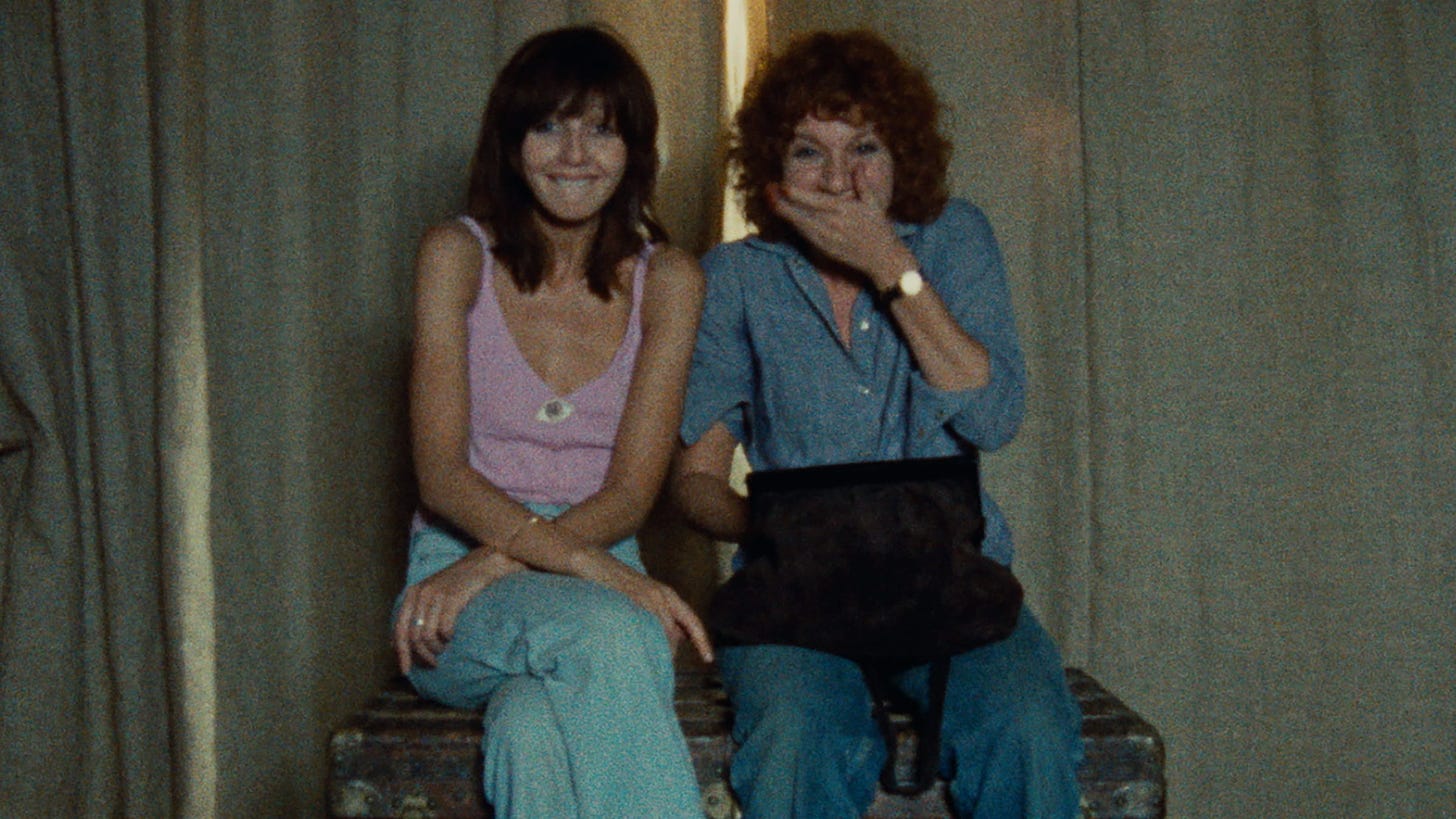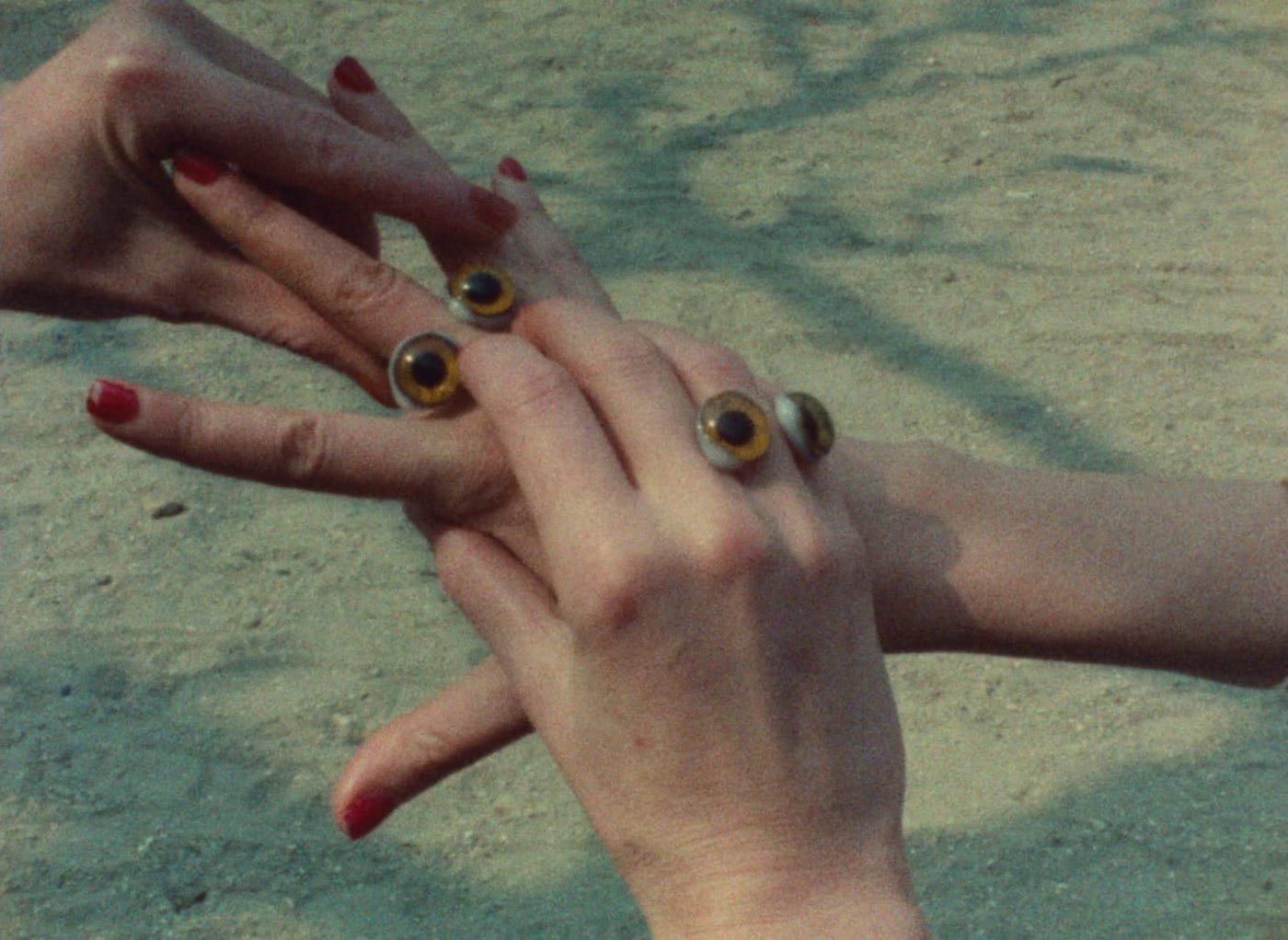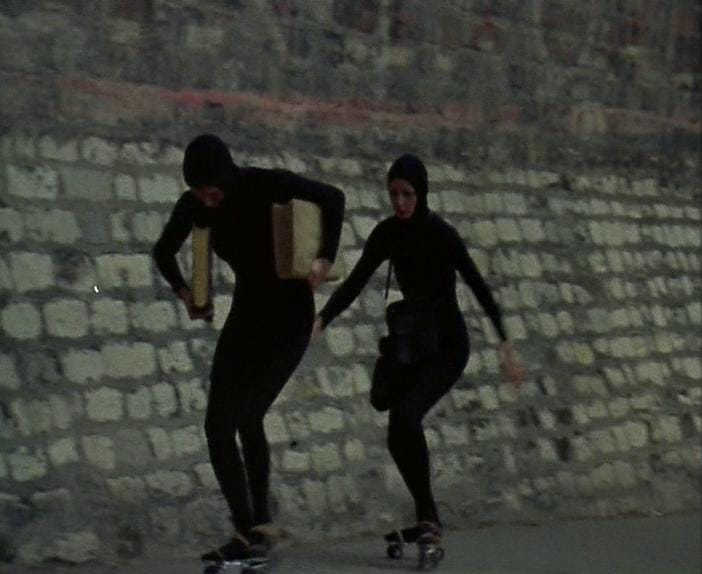Celine and Julie Go Boating (1974)

Two phantom ladies who borrow one and others identities, a mysterious house with seemingly no residents, a Hollywood melodrama perpetually playing out but always ending in tragedy and dreams that are so real you can almost dive in and manipulate them. These are all things you might come to expect when watching a Jacques Rivette film; ever since his first film – Paris Belongs to Us – he has been obsessed with the idea of dreams, shadowy individuals, conspiracies that slowly unravel and the theatricality of everyday life. The last film he made before 1968 was The Nun, starring Anna Karina, and despite being ready by 1965 it was delayed for an entire year due to censorship by the French government. Due to a tortuous production, the failed political movements of the ‘68 protests in France and meeting Jean Renoir, Rivette decided to approach films in a different way. They became looser in plot but denser in themes; the conspiracies in his films became darker and the population of Paris became slowly more trapped by the harshness of the modern world.
Despite all of this Rivette would go one to create his most playful and joyous film in 1974 with Celine and Julie Go Boating, an incredibly unique film that blends comedy, drama and mystery in a completely spellbinding way. Two women Celine (Juliet Berto) and Julie (Dominique Labourier) investigate a mysterious house that Celine is seemingly afraid of. First Julie enters and then, hours later, gets thrown out. She remembers nothing. Not a single thing about the house or what happened inside of it. All she has is a hard boiled sweet that, when consumed, gives her visual flashbacks to what actually happened. Inside of the house, potentially in another time or an alternate universe, there is a melodrama playing out in repeat. Every day the characters of the melodrama perform the same acts and speak the same lines and whichever person enters fulfils the role of the Nanny. This melodrama feels like it has come straight from 50s Hollywood and features a dangerous love triangle (between a man and both his dead wife's sister and friend) with the film finally resulting in the tragic death, or murder, of a child.

Rivette frequently spoke about Howard Hawks, especially his influence and the legacy of his films. This influence can be greatly felt here. Classic Hawks’ themes such as strong women, dedicated friendships, the absurdity of everyday life and ultimately the sacrifice of a detailed plot for something more loose can all be found within this film. Jonathan Rosenabum once said that “Every Rivette film has its Eisenstein/Lang/Hitchcock side—an impulse to design and plot, dominate and control—and its Renoir/Hawks/Rossellini side: an impulse to 'let things go', open one's self up to the play and power of other personalities, and watch what happens”, in the case of Celine and Julie the first act of the film is the Hawksian hangout movie and the second act becomes a Sirkian melodrama that the two women try to unravel and eventually manipulate.
Many parts of Celine and Julie play out as a farce; whether it is Celine imitating Julie and scaring away her pretentious and annoying love interest (who happens to be her cousin), or Julie pretending to be Celine by continuing her magic act in which she performs a terrifying Vaudeville performance and then shouts at the viewers in angry disdain. The humour comes deep from within the performances by Berto and Labourier who worked with Rivette on writing the film and coming up with the personalities and dialogue for each of the characters. Allowing the two actors to help create their roles and giving room for improvised contributions are two key components of Rivette’s work process and it helps imbue his films with a feeling of naturalism.
This naturalism then comes in direct collision with his fixations on the fantastic, dreams and magic; meaning his films, especially his early ones, often fall in the realms of magical realism. Rivette rarely uses special effects or surrealist imagery to craft this fantasy; instead he uses his trademark, minimalist mis-en-scene and long takes to create a dreamy atmosphere without feeling overly flashy or at all pretentious. In a Rivette film it is never clear which reality is real, if the conspiracies that encroach on the protagonists actually exist or if the fantasy in the world is just a figment of the character’s imaginations. Often it feels like the fantasy in his films are used as a way to escape the mundanity of real life and a reflection of his desires to escape from the ever alienating world that exists in post ‘68 France.

Celine and Julie Go Boating is both a love letter to and a parody of the classical Hollywood melodrama – a genre that many Cahier du Cinema critics championed in the 60s. The film that plays out inside the house is a complete caricature of the films that directors like Douglas Sirk created; with its incredibly overwrought dialogue, plot points that are often confusing and a man who seemingly falls in love with every woman he comes into contact with. Rivette’s obsession with drama and theatre would eventually culminate in his penultimate film – The Duchess of Langeais, a period drama about a doomed romance between two trapped, bourgeois lovers.
The scenes where the two women watch the films via flashbacks are incredibly funny, especially due to how playful and involved the two characters are in watching them. However, it is when the two realise that they can alter the narrative of the parallel reality that the film really shines. With its dreamlike nature it is never really clear if the film they are manipulating is real or if it is just something that they have conjured up themselves through their friendship; whichever your interpretation, the way in which it portrays the consumption and manipulation of both plot and images is something that is totally unique and has never been emulated since.
